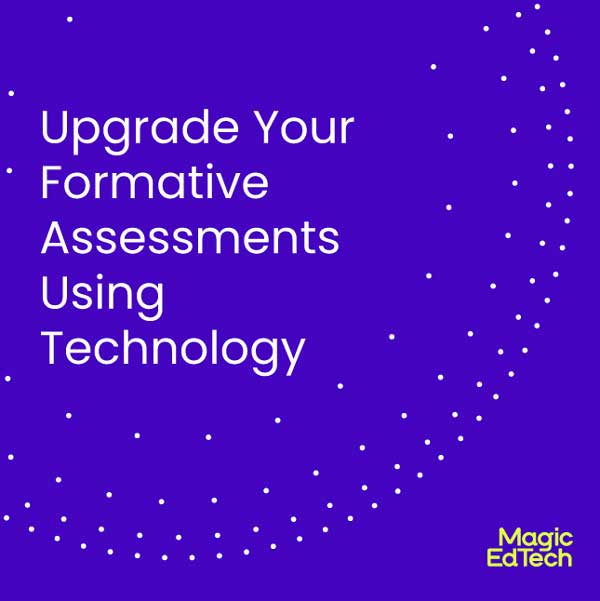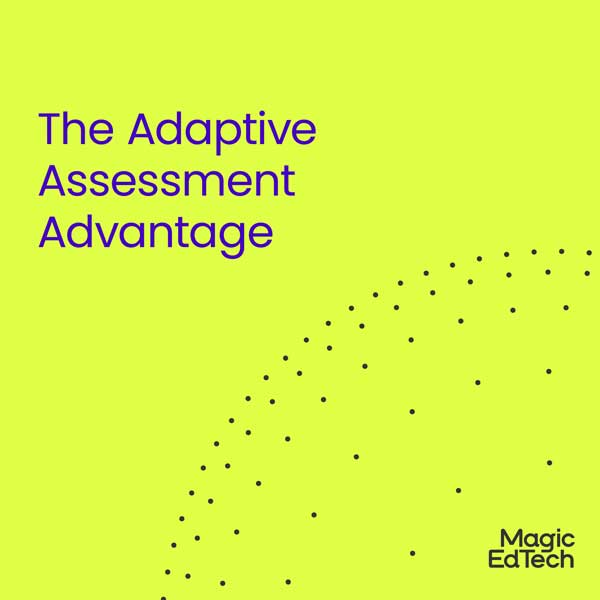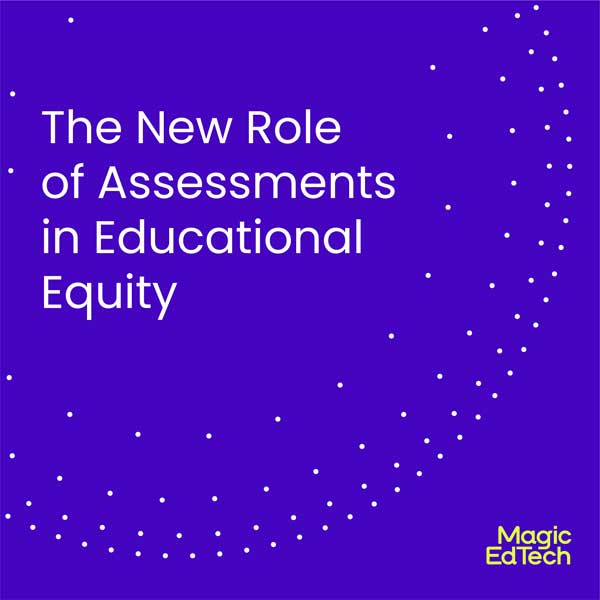Can Adaptive Assessments Be the Secret Sauce for Remote Learning Success?
- 6 July, 2023
- Reading Time: 6 mins
We’ve tried it before, and the same learning approach doesn’t work for everyone. With more and more avenues for remote learners opening up, can we help them do better? Adaptive learning (or personalized learning) can be a gateway to help remote learners succeed. It customizes each learning experience based on a learner’s strengths, weaknesses, pace, and preferences.
Today, we embark on a journey to explore the remarkable potential of adaptive learning and the role of adaptive assessments in it.
“Technology can become the “wings” that will allow the educational world to fly farther and faster than ever before—if we will allow it.” – Jenny Arledge
In this blog, we will explore the benefits of adaptive assessments or computerized adaptive testing. We’ll also take a walkthrough of how this category of assessments can aid test prep products, we examine the limitations of existing platforms and emphasize the crucial importance of accurate assessment for continuous product improvement and customer satisfaction.
Let’s get started!

Understanding the difference between Adaptive Learning and Adaptive Assessments
Before discussing Adaptive Learning, let’s understand the basics.
Adaptive learning in education is a personalized way of learning that uses technology and data to customize your education. It adjusts the learning content and speed based on what you need. These results are bettered by using adaptive assessments. By improving the quality of tests, we set the stage for a better understanding of learners. So what is an adaptive assessment? How does it work?
Adaptive assessment platforms allow learners to answer questions that are tailormade to their understanding of a topic. It does this by automatically adjusting the level of difficulty with every question. The student gives an answer; if the answer is correct, the student gets a question that is more difficult than the previous one. If the student gives the wrong answer, the next question will adjust to something easier. This goes on until the assessment platform determines what the final score of the student will be.
It sounds complicated, so why Adaptive Assessments again?
Well, for starters, the only complexity here is what goes on behind the workings of an adaptive assessment platform. A lot of times, these adaptive assessment engines need Artificial Intelligence or Machine Learning to improve their accuracy.
But once the engine is in place, here’s what a learner gets out of it – shorter tests, less testing anxiety. Here’s what an educator or administrator gets out of it – more accurate results, reduced chances of cheating, and a detailed understanding of the learner’s strengths and weaknesses. To know more about the benefits of adaptive assessments in detail, check out our previous blog.
How can Adaptive Assessments Help Personalized or Adaptive Learning?
Adaptive learning is an exciting field with lots of potential for growth as new technologies and applications are being developed.
Here’s how, in particular, adaptive assessments complement the components of adaptive learning:
1. Personalized Learning Paths: A learning journey is tailored to your learners’ needs. With a short mix of questions, adaptive assessments can determine what those needs are. If the learner struggled with a part of the subject, the data from these assessments will pinpoint what that is.
2. Real-time Feedback and Assessment: The learner gets instantaneous feedback to know what they need to work on. This is enabled through speedy analysis of an adaptive assessment engine. It works great for remote learners, allowing them to keep the momentum of learning high.
3. Customized Content: The learning materials match the skill level and learning style. While data on learning styles may not be supported by adaptive assessment results, skill levels certainly are! For test prep companies that cater to remote learners, it wouldn’t be hard to feed these results into a recommendation engine that sends students the material they need to work on.
4. Accessible Anywhere: Students can learn using different devices and platforms that are convenient for them. This is another factor that adaptive testing technology can solve. The tests can be delivered over different platforms and the shorter nature of these tests make them easy to take.
5. Progress Tracking: You use data to see how they’re doing and measure the program’s effectiveness. The results from adaptive tests can be used to measure different parameters like the efficacy of a program or teacher efficacy.
One of the key benefits of adaptive assessments is its ability to motivate learners. Providing tailored challenges and adapting difficulty levels keeps learners engaged and invested in their educational journey.
As remote learners overcome each challenge, their sense of accomplishment grows, driving them forward to conquer more complex concepts and skills.

The Business Case for Upgrading to Adaptive Assessment Platforms
No more incomplete question banks
Many existing testing platforms rely on traditional question banks that fall short of assessing remote learners adequately. These question banks often lack comprehensiveness, resulting in missed opportunities to evaluate learners accurately.
Consequently, knowledge gaps may go unnoticed, hindering further learning and potentially impacting performance outcomes. But with Machine Learning, testing platforms can only get better. See success stories for incorporating the 3 Parameter Logistics model for Item Response Theory (IRT 3PL) and generative AI for question banks.
Maximize on learning opportunities
Without adaptive technology, existing platforms struggle to identify areas where remote learners require additional support. This limitation prevents timely interventions from addressing knowledge gaps effectively.
By not leveraging adaptive technology, test prep companies risk leaving learners without the targeted guidance necessary for their success.
Targeted Learning Interventions
Accurate assessment is the key to unlocking targeted learning interventions. By precisely identifying learners’ knowledge gaps, adaptive technology empowers test prep companies to provide tailored support.
With a deep understanding of each learner’s needs, companies can design interventions that address specific areas of weakness, resulting in accelerated progress and improved learner outcomes.
Continuous Product Improvement
The accurate assessment also plays a vital role in continuously improving test prep products. By collecting detailed data on learner performance, companies gain valuable insights into the efficacy of their platforms and content.
This data-driven approach enables them to refine their products, align them with learner needs, and enhance customer satisfaction.
Competitive Advantage
Adopting adaptive technology provides a competitive advantage in the ever-evolving landscape of test prep. By embracing adaptive learning experiences and assessment, companies position themselves at the forefront of innovation.
This advantage attracts new learners seeking personalized solutions and retains existing customers who expect cutting-edge, effective learning experiences.
Customer Satisfaction and Retention
Failure to incorporate adaptive technology may lead to negative customer feedback. In an era where learners increasingly demand tailored learning experiences, platforms that fall short may face dissatisfaction and attrition.
By leveraging adaptive technology, test prep companies can exceed customer expectations, solidify their reputation, and cultivate long-term loyalty.
Taking the Next Step
If you are captivated by the possibilities and benefits of adaptive technology, we invite you to explore our innovative solutions further. Magic EdTech offers an innovative solution that combines IRT (Item Response Theory), 3PL (Three-Parameter Logistic) model, and AI/ML (Artificial Intelligence/Machine Learning) technologies to create adaptive test prep and e-learning platforms.
By leveraging IRT 3PL, the platform can accurately assess a learner’s proficiency level and adapt the difficulty of questions based on their responses. This ensures personalized learning experiences, effectively addressing individual learning gaps.
By collaborating with us, you can harness the power of adaptive technology to elevate your continuous product improvement efforts and ensure unparalleled customer satisfaction.
Integrating adaptive technology in test prep products opens new horizons for remote learners. Through personalized learning paths, motivation, and accurate assessments, adaptive technology empowers learners to thrive.
Magic EdTech is about creating the perfect adaptive eLearning platform and offering customized adaptive learning solutions to help you take your business to the next level. To learn more about our products and services, email us at marketing@www.magicedtech.com or visit our website today!



